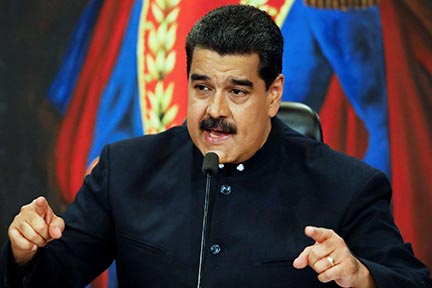S&P Global Platts, the international provider of energy and commodities information has reported in its January 2018 Global Survey of member countries of the Organization of Petroleum Exporting Countries (OPEC) that, for the sixth straight month Venezuela’s oil output has fallen, reaching 1.64m barrels per day in January. This is against the backdrop of prolonged political instability in the South American republic.
The January oil production figure for Venezuela represents an output decline of 60,000 barrels per day which, according to S&P represents a low that has not been seen in one of the world’s largest oil-producing countries since its oil industry was ravaged by a major strike between December 2002 and February 2003. The report says that excluding strike-affected periods Venezuela’s oil production has not fallen this low since June 1988. The report goes further, projecting the likelihood of further declines as the political crisis in the country persists unabated and it continues to be afflicted by huge debt, hyperinflation, and financing restrictions affecting the state-owned Petróleos de Venezuela, S.A. (PDVSA). The shadow of further economic woes for Venezuela’s oil industry and for the country’s economy as a whole loomed larger earlier this month when, during a visit to the region earlier this month, United States Secretary of State Rex Tillerson suggested that Caracas could experience further sanctions, some aimed directly at PDVSA, including restrictions on Venezuela’s oil exports to the United States as Washington continues to oppose the regime of President Nicholas Maduro.
A mid-January report in the Wall Street Journal declared that the country’s oil output was “collapsing at an accelerating pace, deepening an economic and humanitarian crisis and increasing the chances the country will default on its debts.”
The Wall Street Journal says that Venezuela’s crude oil production fell 12% from the previous month. Across the twelve months of 2017 production reportedly fell by 29%, a decline which the Wall Street Journal said was “among the steepest national declines in recent history…………… deeper than that experienced by Iraq after the 2003 war there……….or by Russia during the collapse of the Soviet Union.”
Setting aside the domestic political crisis in Venezuela and the attendant threat by Washington to leverage its influence to impose further economic sanctions on Venezuela, PDVSA has reportedly been suffering from the effects of long-term corruption inside the state-run entity that controls the country’s oil industry. In mid-2017 reports surfaced of the sacking and arrest by President Maduro of virtually the entire top brass of the company. Successive political administrations in Venezuela have vocally advocated the rooting out of graft and corruption in PDVSA amidst claims that the entity has not been delivering sufficient revenue to the state, though, in reality, that has proven to be easier said than done.

